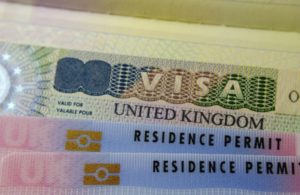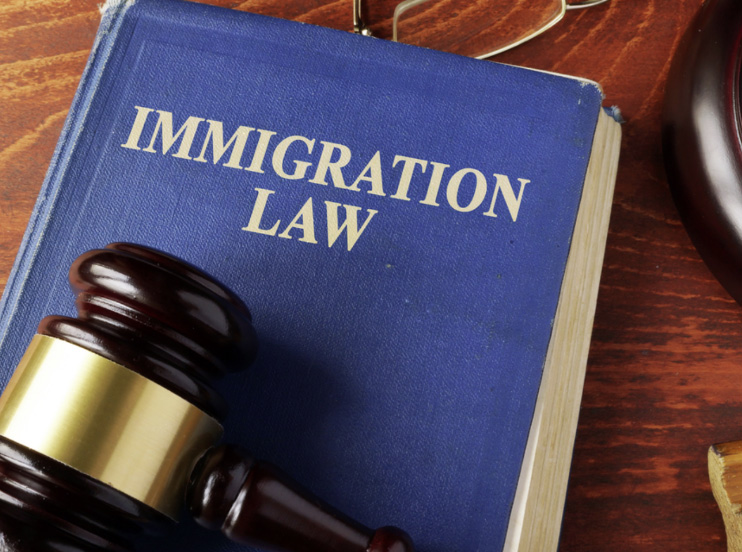If you are considering applying for a Skilled Worker sponsor licence, then head over to our new and comprehensive legal guide on applying for a Skilled Worker sponsor licence. We believe it’s the most helpful guide out there!
From 1 January 2021, the UK’s immigration system will be overhauled. The biggest change will be the end of the free movement of EU nationals, but there will also be significant tweaks to the sponsorship system. Here we look at the rules facing employers and employees wishing to sponsor employee from overseas, including EU nationals, from 2021. We look at what the new Skilled Worker route will look like and how it differs from the current Tier 2 General model.
In outline, what is changing?
From 2021, it will become significantly harder for EU nationals to live and work in the UK. But this loss of free movement is somewhat offset by the wider changes which make it easier to sponsor individuals more generally.
The Tier 2 system is being rebranded the Skilled Workers route, but the changes are not all cosmetic: many more types of jobs will be capable of being sponsored, as the minimum skills threshold drops significantly. The minimum salary thresholds are also being lowered. The cap on the numbers who can be sponsored each month is being suspended, whilst there will no longer be a requirement to run a resident labour market test. To put it extremely simply, it becomes much harder to bring an employee over from France, but easier to bring one over from India.
What is the minimum skills threshold?
The Tier 2 General system normally requires jobs to be recognised at RQF Level 6 or above. RQF Level 6 is considered to be at degree level. There are currently exceptions to this, including if the job is on the shortage occupation list, or if the salary package is at least £159,600.
From 1 January 2021, however, the minimum skills threshold will decrease to RQF Level 3, RQF Level 3 is considered to be A-level equivalent. This is a significant change which opens up many more jobs to sponsorship.
What is the minimum salary threshold?
The good news is that the general minimum salary thresholds are coming down. Bad news is that this whole area remains complicated, as the threshold can vary, according to the specific job and the individual applying for the job.
As at present, there will be the minimum salary associated with each job – or what the Home Office call the ‘going rate’, which varies by job. For example, a CEO must be paid at least £65,100, whilst for a web developer it is £25,700.
In addition to the going rate, there is a general minimum threshold, currently set at £30,000, and you need to pay whichever is the higher of the going rate or the general minimum salary threshold. So, in the examples above, a CEO would still be paid at least £65,100, whilst a web developer would now need to be paid £30,000.
From 2021, an individual applying for a Skilled Worker visa will have to score 70 points. They will score 50 points by having a job offer at RQF level 3 or above, and by meeting the English language requirement (scoring points in these departments is in fact mandatory).
The individual then needs to score a further 20 points, which can be attained through various means. Importantly, the general minimum salary threshold reduces from £30,000 to £25,600. Under the new rules if the individual will be paid at least the £25,600 or the going rate, whichever is the higher, then they get the 20 points.
However, there is scope for an individual to be paid less than this. If the job is on the shortage occupation list, or if the individual holds a PhD in STEM relevant to the job, then they could still score 20 points, provided the job pays at least £20,480.
To further complicate matters, the above is all based on someone being what the Home Office class as an ‘experienced worker’. A ‘new entrant’, on the other hand, can be paid significantly less. New entrants include those switching from student visas, those under the age of 26, and individuals working towards recognised professional qualifications or moving directly into postdoctoral positions.
What about the resident labour market test?
At present, unless exempt, employers will have to show no suitable ‘settled worker’ could do the job, before sponsoring someone from overseas. This was achieved by the employer running the highly prescriptive, time-consuming, residence labour market test. This was a considerable barrier to employer’s hiring their preferred candidate from overseas.
Thankfully, this test will be abolished. However, sponsored roles must still be ‘genuine’, and the Home Office has made it clear it will be on the look-out for roles which are manufactured solely to facilitate brining in migrants to the UK.
Does the monthly cap still apply?
At present there is a monthly cap on the number of individuals that can be sponsored with a restricted certificate of sponsorship – generally those requiring a restricted certificate of sponsorship will be applying from overseas.
From 2021, however, the monthly cap is being ‘suspended’. This suggests, however, that the cap could be re-imposed, potentially at short notice.
Will I need a licence to sponsor EU nationals?
This depends on whether the EU national has an alternative basis of leave in the UK, most probably under the EU Settlement Scheme. In general terms, those EU nationals living in the UK by 31 December 2020 will be eligible for the EU Settlement Scheme or may already be registered.
This means that EU nationals arriving from 1 January 2020 will probably have to sponsored as a Skilled Worker (and this is where employers will feel the full force of Brexit).
How much will it cost to sponsor a Skilled Worker?
Employers will be liable to pay the Immigration Skills Charge, unless exempt, at the same rate as present. The charge is currently £1,000 per year, per migrant, for businesses defined as large, or £364 per year, per migrant, for small/medium enterprises and charities.
There will be a discounted rate for those under 18, as well as exemptions for frontline workers in the NHS and social care sector, as well as ‘wider health workers’.
Will my sponsored Skilled Workers still have to speak English?
Yes, the requirement to demonstrate English at a minimum level of B1 for the Skilled Worker route will apply.
How do I apply for a sponsor licence?
If you want to apply for a Tier 2 licence, before it is abolished at the end of 2020, then you can read our Ultimate Guide to Applying for a Tier Sponsor Licence. You can also contact us for a free, no-obligation consultation, after which we will provide you with a fixed fee quote and give you the chance of letting us guide you through this tricky process.
If you want to apply for a Skilled Worker licence, from 2021, then we have no detail yet on the application process. Presumably, it will be the same, or similar to, the current Tier 2 application process. Again, do contact us for a no-obligation consultation.
Will I be able to sponsor Skilled Workers from 2021 under my existing Tier 2 General sponsor licence?
Yes! The Home Office has confirmed that employers already holding an existing Tier 2 General sponsor licence will be granted a new Skilled Worker licence, with an expiry date mirroring the current date.
Truth Legal – Sponsor Licence Experts
If you want to apply for a Tier 2 sponsor licence, or a Skilled Worker sponsor licence, or have any other issue relating to your sponsor licence, contact us for a free consultation today.
Further Reading
From one of the UK’s most read legal blogs.











